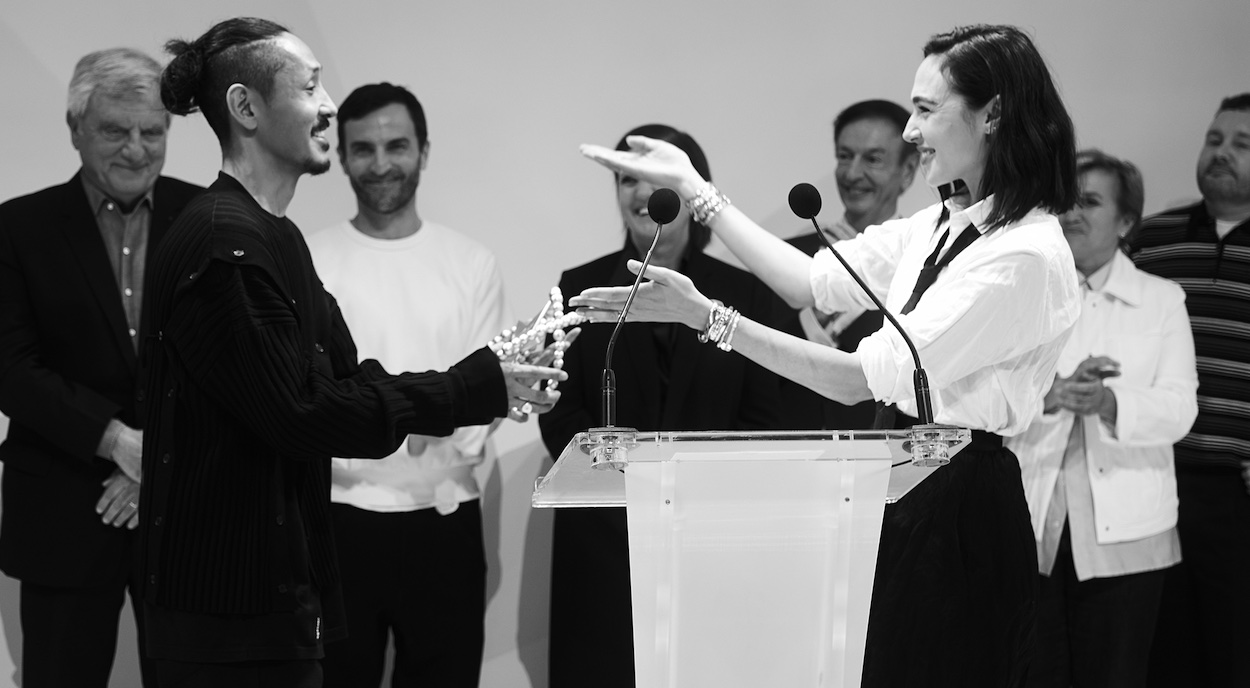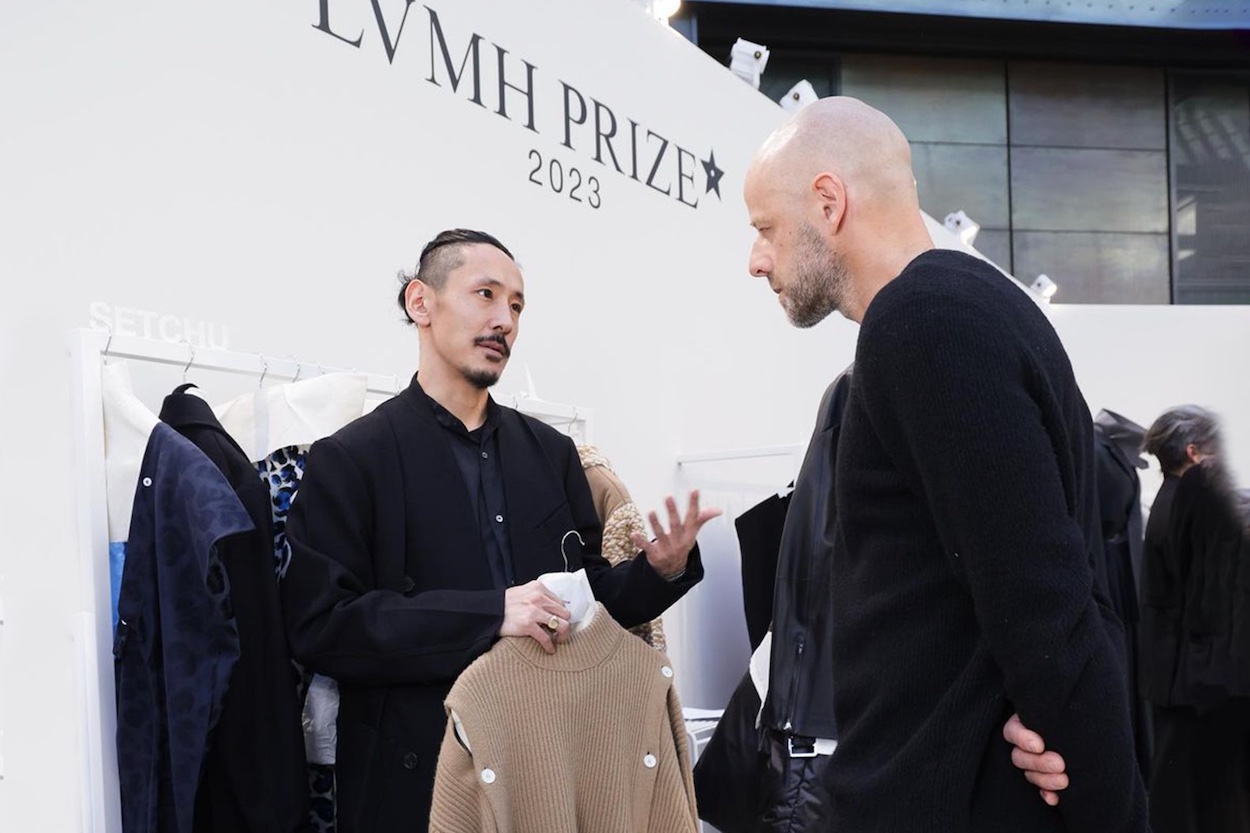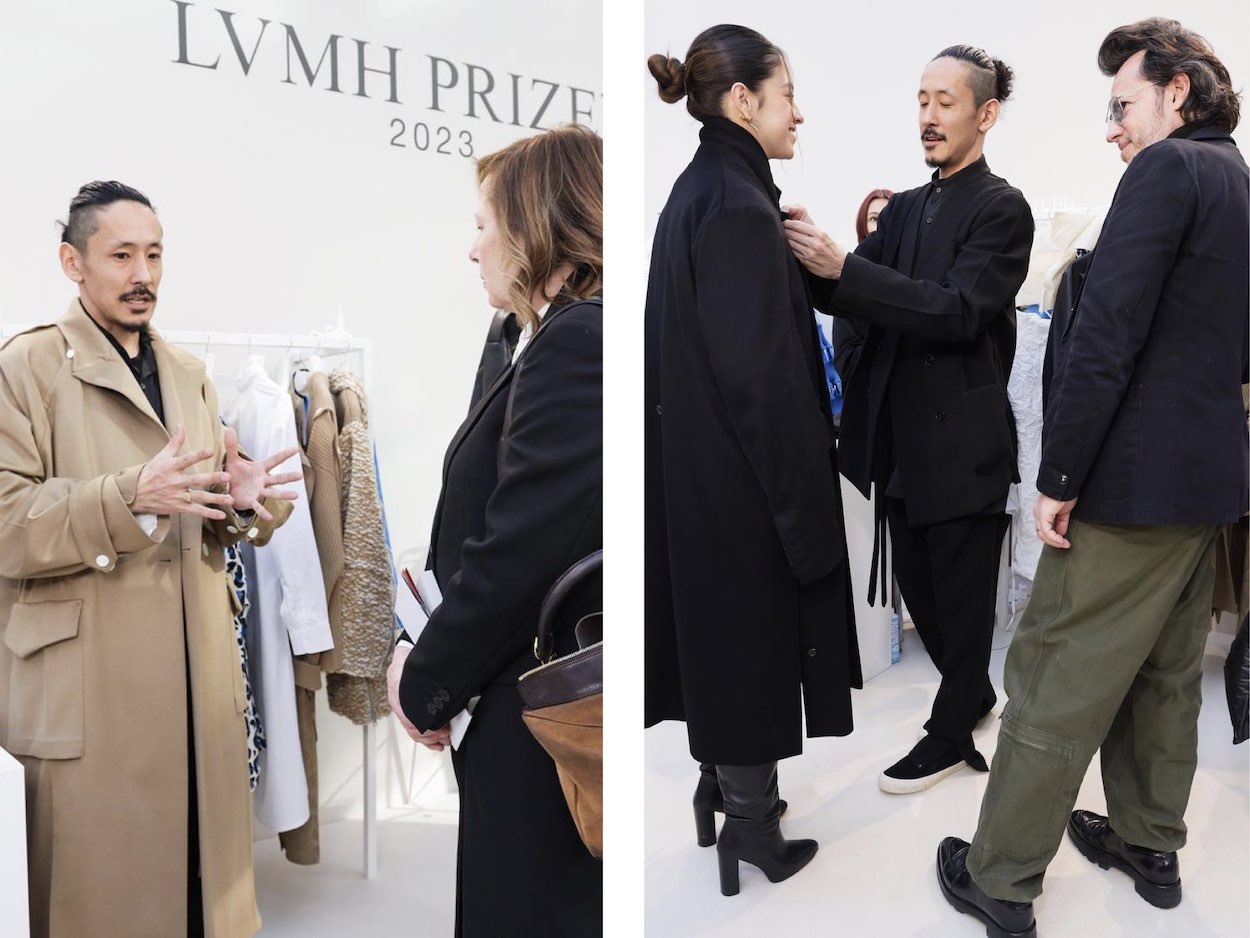The LVMH Prize for Young Designers, or LVMH Prize in short, was created a decade ago by Surface cover star Delphine Arnault. The cash prize—this year’s sum was 400,000 euros ($429,000)—along with executive mentorship opportunities and the star power of LVMH’s network is unlike anything else in the industry, earning it the moniker of “prince maker” for its ability to catapult winners to stardom. Look no further than the meteoric rise of past winners Simon Porte Jacquemus, Marine Serre, and Grace Wales Bonner.
This year’s jury included LVMH artistic directors Jonathan Anderson, Maria Grazia Chiuri, Nicolas Ghesquière, Marc Jacobs, Kim Jones, Stella McCartney, Nigo, and Silvia Venturini Fendi, as well as Arnault, Jean-Paul Claverie and Sidney Toledano. Kuwata, a 39-year-old Japanese designer and Givenchy alumnus, was selected as this year’s prize winner from a pool of 2,400 initial applicants. As Arnault recounted, the jury’s decision was unanimous: “He did an exceptional presentation,” she told Vogue. “Two jury members wanted to buy his jacket. He has a lot of talent and a promising future. Everyone was pretty convinced.”
Kuwata is a Central Saint Martins graduate and Savile Row–trained tailor whose education and on-the-job experience at Givenchy and Gareth Pugh led him to found Setchu, his genderless fashion label. According to Setchu’s web and social presence, the brand’s ethos is rooted in a “compromise” or “blending of Japanese and Western concepts.” Setchu’s Instagram showcases a range of sumptuous knits, outerwear staples, and statement pieces, all with the effortlessly good-looking fit that in fact takes years of education and expertise to master. His aptitude for “layering, draping, and blending textures,” and “beautiful tailoring” comes as little surprise to anyone who knows of his training at bespoke tailoring house Huntsman, a 174-year-old fixture of Savile Row.
Kuwata’s selection seems to represent a break in the recent trend of designers aspiring to celebrity status: Setchu’s website makes no mention of Kuwata, and its Instagram does not follow him. (His own profile is private.) It’s a passing detail that contextualizes the grace and humility with which he answered the New York Times’ inquiries about how he will use the prize money: office space, an e-commerce platform, and eventually an accessories line. For a designer such as Kuwata, who reportedly employs only one staff member and has produced five collections for Setchu, the $429,000 prize and mentorship stand to be life-changing.
“Don’t rush, everyone is talented, it’s just a matter of timing,” Kuwata says in an archival interview with Central Saint Martins. “It might take some time for a young graduate to get their first job opportunity, but don’t give up as it’s only a matter of time before somebody discovers your talent.” His words feel prescient in the aftermath of his big win—at 39, this is his final year of eligibility for the prize, which requires entrants to be under the age of 40.



